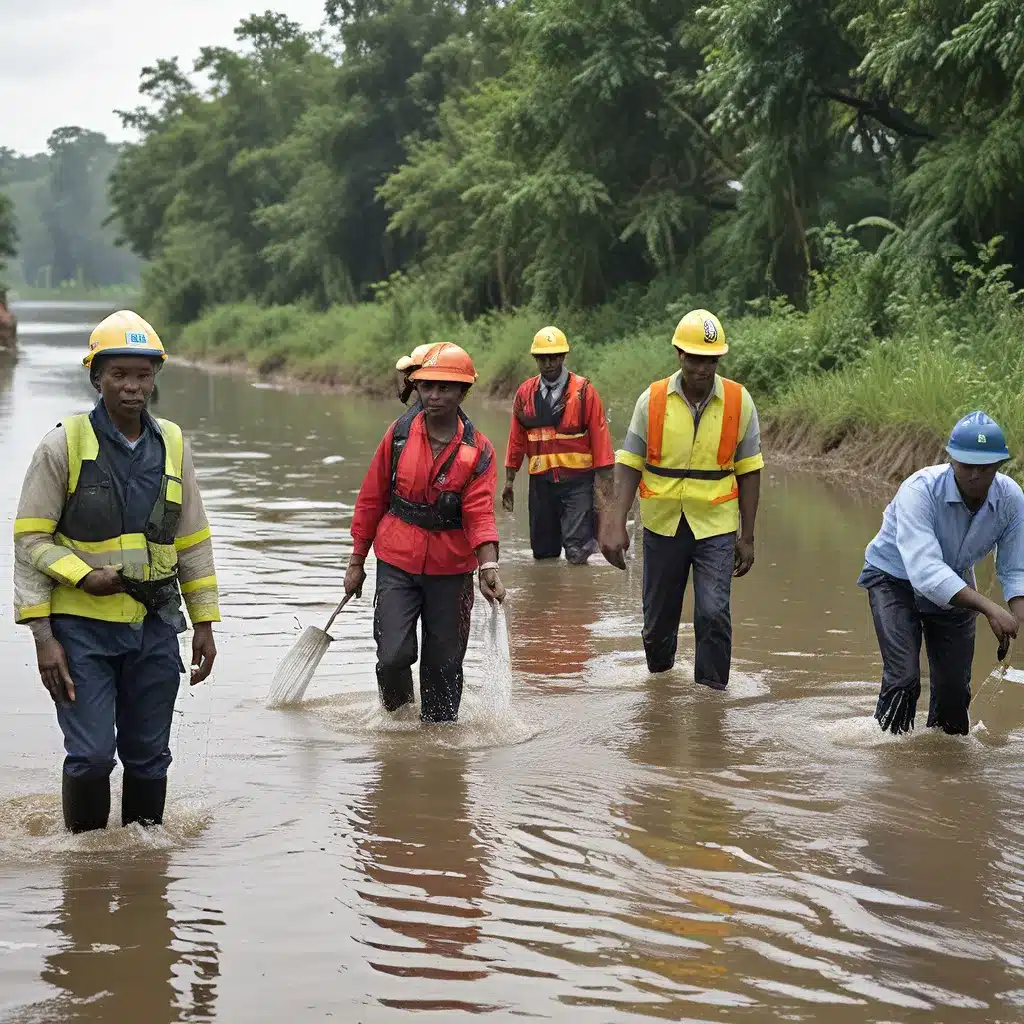
Navigating the Stormy Seas of Emergency Response
As the water treatment and environmental services industry grapples with an ever-evolving landscape of threats, the need for robust crisis management and emergency response planning has never been more pressing. In the face of natural disasters, infrastructure failures, and even potential acts of terrorism, water sector leaders must be prepared to steer their organizations through the choppy waters of uncertainty.
But where do we even begin? The task can seem daunting, like trying to chart a course through a raging hurricane. “How can I possibly prepare my team and my community for every possible scenario?” you might wonder. Well, my friends, buckle up, because I’m about to share some insights that just might change the way you approach crisis management.
Embracing the Whole Community Approach
One of the key principles in emergency preparedness is the “whole community” approach, as outlined in a report by the Federal Emergency Management Agency (FEMA) Whole Community Approach to Emergency Management. This framework recognizes that effective crisis response requires the collaboration and coordination of a diverse array of stakeholders – from government agencies and first responders to community organizations and individual citizens.
As a water sector leader, your role is to cultivate these essential partnerships and ensure that everyone is moving in the same direction. It’s like captaining a ship with a crew of experts from different backgrounds – the key is to harness their unique skills and perspectives to navigate the stormy seas ahead.
Weathering the Storm: Crisis Financing and Preparedness
Now, let’s talk about the nitty-gritty of crisis financing and preparedness. The World Bank Group has recently unveiled a suite of groundbreaking tools to help developing countries better respond to crises and strengthen their preparedness for future shocks.
One of the standout features is the Rapid Response Option, which allows governments to quickly repurpose a portion of their unused World Bank financing to address emergency needs. Imagine you’re facing a devastating hurricane, and you need to divert funds from a long-term infrastructure project to ensure the immediate availability of food and shelter for your citizens. The Rapid Response Option gives you that agility and flexibility to respond swiftly.
But that’s not all – the World Bank Group is also offering substantially scaled-up access to pre-arranged financing for emergency response, strengthening countries’ financial capacity and preparedness for future crises. This means you’ll have the resources on hand to manage the impact of a disaster without having to juggle your development priorities and emergency financing needs.
And let’s not forget about expanded catastrophe insurance. By embedding catastrophe bonds, insurance, and other risk management products into their World Bank financing operations, governments can be eligible for payouts in the event of a crisis, without having to take on more debt. It’s like having a trusty life raft ready to deploy at a moment’s notice.
Training the Next Generation of Crisis Heroes
As you work to fortify your organization’s crisis management capabilities, one of the most critical components is, without a doubt, training and education. FEMA’s National Preparedness Directorate has a robust enterprise of institutions and partnerships, including the National Training and Education Division (NTED) and the U.S. Fire Administration’s National Fire Academy (NFA).
These entities offer a wide range of training courses, from incident management and mass casualty response to emergency response to catastrophic natural disasters and terrorist acts. And the best part? Many of these programs are federally funded, meaning your team can access world-class training at no cost to your organization.
But it’s not just about equipping your frontline responders – the Center for Homeland Defense and Security (CHDS) also provides a wealth of programs focused on assisting current and emerging leaders in homeland defense and security. By investing in the professional development of your team, you’re not only strengthening their crisis management skills, but you’re also cultivating a culture of continuous learning and innovation within your organization.
Empowering Community Resilience
As a water sector leader, your role extends far beyond the boundaries of your own organization. You’re a steward of your community’s well-being, and that means ensuring that everyone – from first responders to individual citizens – is prepared to weather the storm.
FEMA’s Individual and Community Preparedness Division (ICPD) has developed a range of training programs designed to empower local organizations and volunteers. Programs like “Organizations Preparing for Emergency Needs (OPEN)” and “You Are the Help Until Help Arrives” equip community members with the knowledge and skills to support their neighbors and sustain critical services during emergencies.
By fostering a culture of community resilience, you’re not only strengthening your own organization’s crisis management capabilities, but you’re also creating a network of allies who can rally together in times of crisis. It’s like having a fleet of sturdy lifeboats ready to launch at a moment’s notice.
Charting the Course Ahead
As we’ve explored, navigating the complex waters of crisis management and emergency response planning is no easy feat. But by embracing the whole community approach, leveraging innovative financing and preparedness tools, and investing in comprehensive training and education, you and your team can emerge as the captains of your own destiny.
Remember, the path ahead may not always be smooth, but with the right preparation and a steadfast crew by your side, you can weather any storm that comes your way. So, let’s raise a glass (of clean, safe water, of course) to the water sector leaders who are charting the course for a more resilient future – one wave-battered challenge at a time.
And don’t forget, if you ever need a trusted partner to navigate these turbulent waters, the team at Inland Waters Inc. is always here to lend a hand. Fair seas and following winds, my friends!


